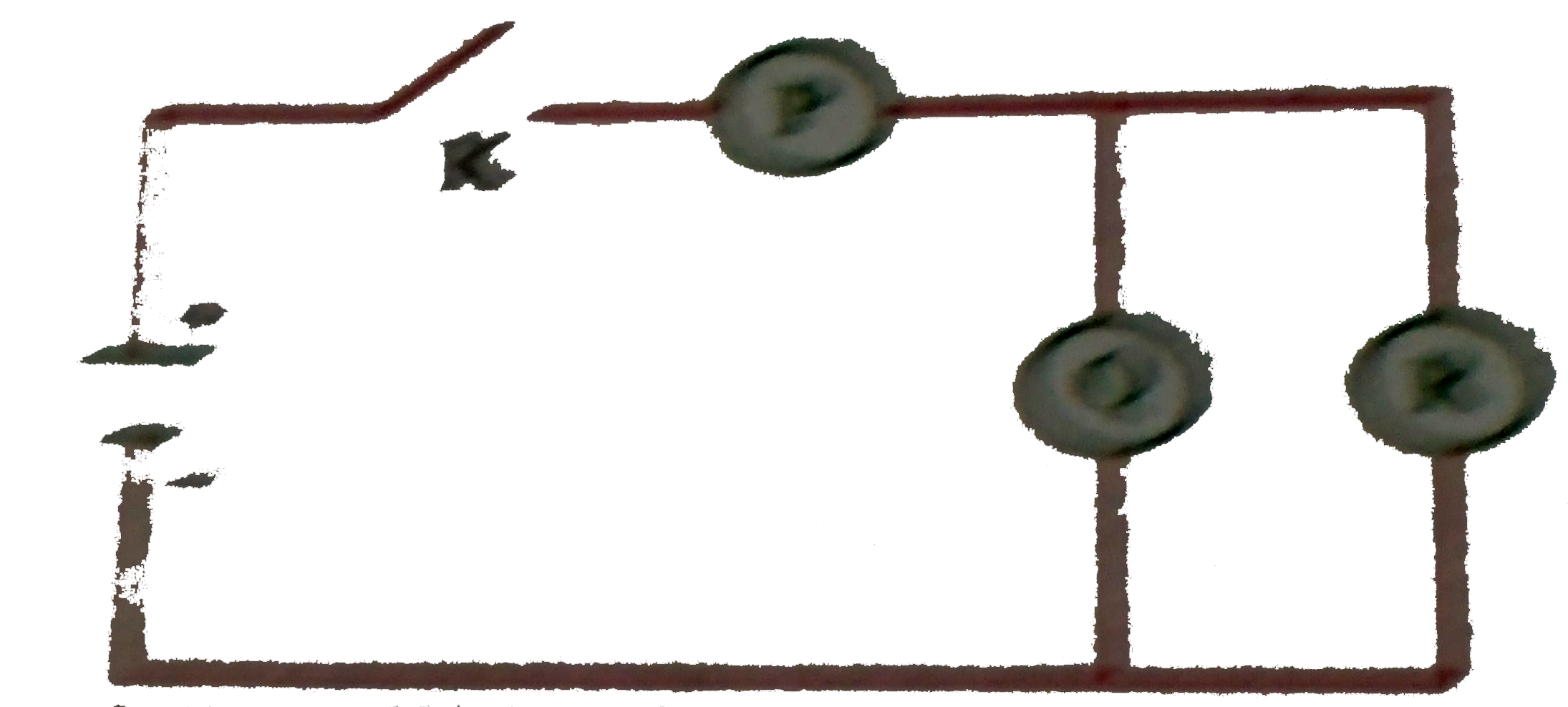Assertion (A) : All the bulbs connected in parallel glow brightly.
Reason (R) : All the bulbs are connected directly to a battery and derive the required electrcial energy.
(A) and (R) are correct and (R) is correct explanation for (A).
(A) and (R) are correct but (R) is not the correct explanation for (A).
(A) is correct but (R) is not correct.
Both (A) and (R) are not correct.
The correct Answer is:A
All the bulbs connected in parallel glow brightly because all the bulbs are connected directly to a battery, and derive the required electrical energy
Topper's Solved these Questions
- BOOK - PEARSON IIT JEE FOUNDATIONCHAPTER - ELECTRICITYEXERCISE - CONCEPT APPLICATION (Level 2)19videos
ELECTRICITY
- BOOK - PEARSON IIT JEE FOUNDATIONCHAPTER - ELECTRICITYEXERCISE - CONCEPT APPLICATION (Level 3)10videos
ELECTRICITY
- BOOK - PEARSON IIT JEE FOUNDATIONCHAPTER - ELECTRICITYEXERCISE - CONCEPT APPLICATION (Level 1)1videos
ELECTRICITY
- BOOK - PEARSON IIT JEE FOUNDATIONCHAPTER - DYNAMICSEXERCISE - CONCEPT APPLICATION(LEVEL 3)15videos
DYNAMICS
- BOOK - PEARSON IIT JEE FOUNDATIONCHAPTER - ELECTROMAGNETISMEXERCISE - CONCEPT APPLICATION ( LEVEL 2)20videos
ELECTROMAGNETISM
Similar Questions
Assertion: Two electric bulbs of 50 and 100W. Are given. When connected in sereis 50W bulb glows more but when connected parallel 100 W bulb glows more.
Reason : In series combination, power is directly proportional to the resistance of circuit. but in parallel comb ination, power is inversely proportional to the resistance of the circuit.View SolutionConnection Of Bulbs In Parallel
View Solution
Knowledge Check
- Question 1 - Select One
Assertion (A) : All the bulbs connected in parallel glow brightly.
Reason (R) : All the bulbs are connected directly to a battery and derive the required electrcial energy.A(A) and (R) are correct and (R) is correct explanation for (A) .B(A) and (R) are correct but (R) is not the correct explanation for (A).C(A) is correct but (R) is not correct.DBoth (A) and (R) are not correct. - Question 2 - Select One
Assertion (A) : All the bulbs connected in parallel glow brightly.
Reason (R) : All the bulbs are connected directly to a battery and derive the required electrcial energy.A(A) and (R) are correct and (R) is correct explanation for (A).B(A) and (R) are correct but (R) is not the correct explanation for (A).C(A) is correct but (R) is not correct.DBoth (A) and (R) are not correct. - Question 3 - Select One
Assertion (A) : All the bulbs connected in parallel glow brightly.
Reason (R) : All the bulbs are connected directly to a battery and derive the required electrcial energy.ABoth A and R are true and R is the correct explanation of A.BBoth A and R are true, but R is not the correct explanation of A.CA is true but R is false.DBoth A and R are false.

Three identical bulbs P, Q and R are connected to a battery as shown in the figure. When the circuit is closed.View SolutionAssertion (A) : The electrical appliances connected in series do not work to their full capacity.
Reason (R ) : The electrical energy drawn from the battery is shared by all the appliances connected in series.View SolutionAssertion (A) : The electrical appliances connected in series do not work to their full capacity.
Reason (R ) : The electrical energy drawn from the battery is shared by all the appliances connected in series.View SolutionAssertion: Charge on all the condensers connected in series in the same.
Reason : Capacitance of capacitor is directly proportional to charge on it.View Solution3 identical bulbs are connected in series and these together dissipate a power P . If now the bulbs are connected in parallel, then the power dissipated will be
View Solution

